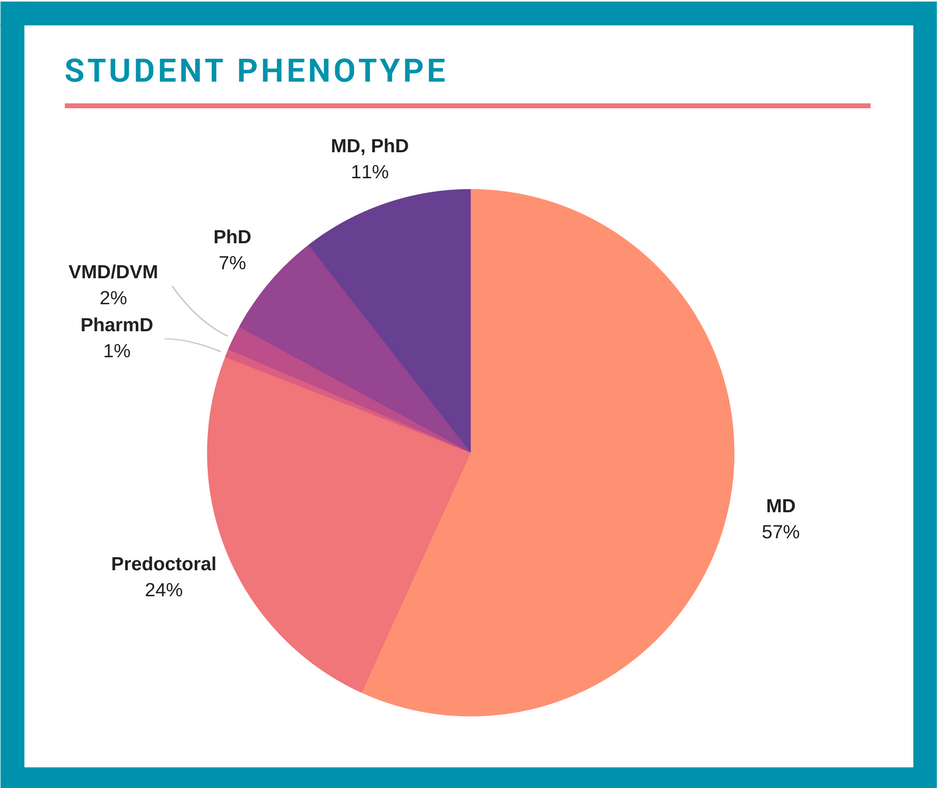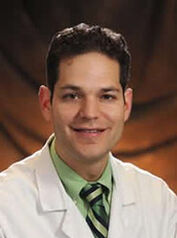Master of Science in Translational Research (MSTR) Alumni
Navigate Master of Science in Translational Research
- Overview
- MSTR Curriculum
- MSTR Tuition
- MSTR Application
- MSTR Alumni
- MSTR Student Resources
- MSTR Thesis Defense Schedule
- MSTR Program Calendar
- MSTR Media Gallery
Jump down to Graduate Spotlight.

Graduate Spotlight
-

Adam Cuker, MD, MSTR
MSTR Graduate, 2010
Current position: Assistant Professor of Pathology and Laboratory Medicine, University of Pennsylvania Perelman School of Medicine
Adam enrolled in the MSTR program because "the course work was practical and applicable to (his) research. At the same time, meeting the requirements for graduation proved not to be an undue burden on (his) time and, in fact, increased the efficiency and methodologic rigor with which (he) was able to pursue (his) research." Throughout the program, Adam "was made aware of a number of critical resources for investigators throughout the institution that (he has) subsequently used for (his) own research." Adam identified the MSTR degree as a valuable credential for grant applications and job searches.
Adam completed the degree while he was a Fellow in Hematology/Oncology at the Hospital of the University of Pennsylvania. After graduation, Adam was awarded a K23 grant from the NHLBI for his study, "Improving the Diagnosis of Heparin‐induced Thrombocytopenial."
Check out Adam's publications on Pub Med.
-

Nuala Meyer, MD, MSTR
MSTR Graduate, 2011
Current Position: Assistant Professor of Medicine, Division of Pulmonary, Allergy, and Critical Care Medicine, University of Pennsylvania Perelman School of Medicine
Before enrolling in the degree program, Nuala was in a basic science lab but aspired to do large-scale genomic studies in human cohorts. She desired deeper training in clinical research, genetics, and informatics. For Nuala, the "MSTR offered a flexible, personalized course of study to help (her) acquire specific skills helpful to (her) research, and simultaneously a comprehensive overview of clinical trial design, human subject protection, statistical methodology, and novel lab techniques. (She) found it quite invaluable to development as a translational researcher."
Nuala found the mentorship component of the program "supremely important" and helped her make contacts across the Penn community who are now her collaborators.
Nuala "would definitely recommend (the MSTR degree program) to anyone interested in pursuing translational research, with a balanced approach to both the human population and to the molecular or imaging methodologies used. The program is best suited to someone with a clear idea of his/her research questions at the outset, and with a focused need for specific coursework."
Nuala completed the degree while she was an Instructor in Pulmonary, Allergy, and Critical Care Medicine at the Hospital of the University of Pennsylvania. After graduating, she was awarded a K23 from the NHLBI for her study, "Genetic Variation in the ANGPT-TIE Pathway and Risk for Acute Lung Injury."
Check out Nuala's publications on PubMed.
-

Nathan Singh, MD, MSTR
MD-MSTR Graduate, 2013
Current position: Internal Medicine Resident, Hospital of the University of Pennsylvania
Nathan enrolled in the MSTR because he "wanted to really learn what translational research looks like - how it is structured and how physician-scientists can bridge this gap." Nathan found that the "landmarks set by the program, including proposal development and presentation, grant submission and thesis defense all forced (him) to continually move forward and re-evaluate progress in the lab, and provided an opportunity to receive feedback from experienced faculty." He described the feedback process as his "own private study section!"
Nathan was a combined degree student and completed the MSTR degree in conjuction with medical school. While enrolled, Nathan was able to attend several professional conferences, give a talk at one of these conferences, and have exposure to leaders in the field. He described the MSTR degree as helpful in residency interviews and residency placement. Even at an early stage in his career, he has submitted several small foundation grants and attributes part of this success to his MSTR education.
Check out Nathan's publications on PubMed.

